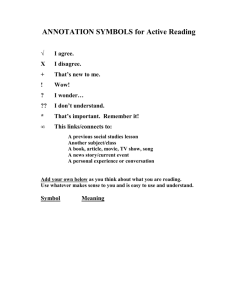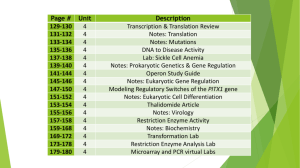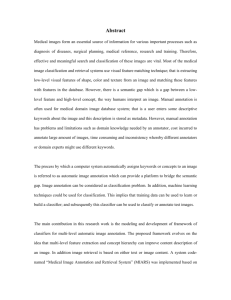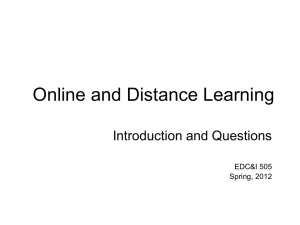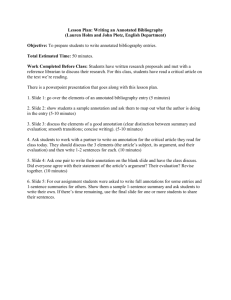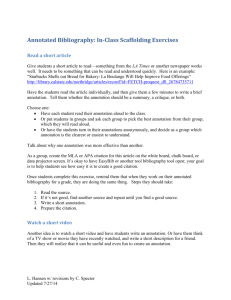MacKinnon BSP-RR Institute Presentation Template
advertisement
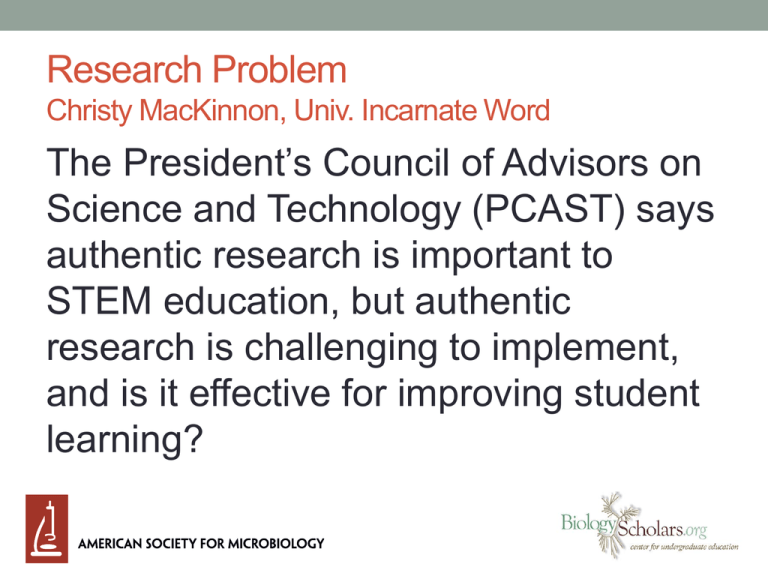
Research Problem Christy MacKinnon, Univ. Incarnate Word The President’s Council of Advisors on Science and Technology (PCAST) says authentic research is important to STEM education, but authentic research is challenging to implement, and is it effective for improving student learning? Research Question • Do students learn more about genetics after completion of an authentic research project or a traditional lab project? • Research Context: Three sections, 24 students per section, in an integrated lecture and lab course (16 weeks) for junior/senior students in a required course for Biology Major. Research Methods Quasi Experimental Design (modified #12) Tx a = traditional project—Modern Biology Gel Electrophoresis of homozygous normal hemoglobin protein, heterozygous, and homozygous recessive sickle cell hemoglobin protein. Tx b = authentic project—Genomics Education Partnership annotation of a gene from a Drosophila sp. • Group 1(TR section): pre-tests, Tx a, [time] post-tests, [time], Tx b [post-test]s • Group 2 (MW section): -pre-tests, Tx b, [time], post-tests, [time], Tx a [post-tests] Schedule of Topics • 1st week: • 2nd week: • 3rd week: • 4th week: • 5th week: • 6th week: • 7th week: • 8th week: • 9th week: • 10th week: • 11th week: • 12th week: • 13th week • 14th week • 15th week Introduction/practice concept map/pre-tests Mendelian Genetics Hb/Annotation labs Genetic/Code Mutations Hb/Annotation labs Chromosomes Hb/Annotation labs Group work/exam 1 Concept map/post-tests Gene Expression Hb/Annotation labs Gene Regulation Hb/Annotation labs Gene Regulation Hb/Annotation labs Group work/exam 2 Concept map/post-tests Genome Structure Case Study/Literature Epigenomics Case Study/Literature Cancer Genomics Case Study/Literature Group work/exam 3 Course Schedule: Comparable Activities • Tx A = traditional lab • Tx B = authentic lab • Hemoglobin Analysis • Wet lab (protein gel electrophoresis) • Database—OMIM • Project report • Gene Annotation • Wet lab (enzyme spectrophotometry) • GEP Annotation • Project report Research Methods (Con’t) Data Collection: • Implement in Fall; repeat in Spring. • Chi-square of pre-test to demonstrate two groups start as the same knowledge base before interventions. • Analysis of embedded exam questions. • Pre/post test: • Genetics Concept Inventory--paired t test. • Concept Maps—rubric analysis. Alignment of Research Question and Methods This is why I think it aligns: Pre/post test/concept maps/embedded questions will assess genetics knowledge resulting from an authentic research project vs. traditional lab project. The data will help me answer my question: Through experimentation, these data will demonstrate that an authentic research experience increases student knowledge of genetics compared to traditional lab experience.
